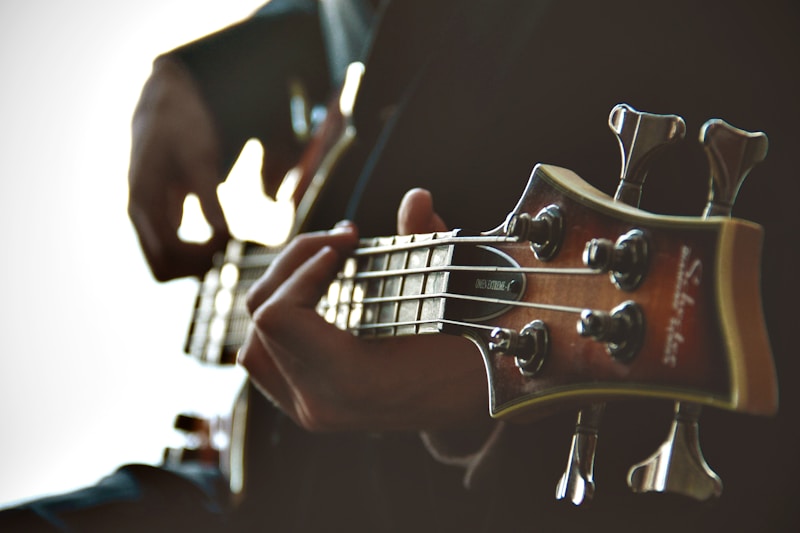Ceremonial Music: The Heartbeat of Culture and Celebration
Understanding Ceremonial Music
Ceremonial music is an integral part of various cultural and religious practices worldwide. It serves multiple purposes, from marking significant events to enhancing the emotional experience of ceremonies. This article delves into the essence of ceremonial music, exploring its significance, different types, and its role in contemporary society. Whether used in weddings, funerals, or religious ceremonies, ceremonial music resonates with the heartbeat of culture, making it a fascinating subject to explore.
The Significance of Ceremonial Music
At its core, ceremonial music is about connection. It connects people to their heritage, community, and even spirituality. This form of music creates a sacred atmosphere, focusing the minds of participants, heightening their emotions, and turning ordinary moments into extraordinary experiences. In many cultures, ceremonial music is considered an offering to deities, a way to request blessings, or a celebration of significant milestones in life.
The Role of Ceremonial Music in Different Cultures
Ceremonial music varies greatly from one culture to another, reflecting unique traditions, values, and beliefs. Below, we explore some popular types of ceremonial music across different cultures:
| Culture | Type of Ceremonial Music | Description |
| African | Drumming Circles | Rhythmic drumming often accompanies rituals, celebrations, and community gatherings, fostering unity and spirituality. |
| Indian | Bhajans and Qawwalis | Devotional songs performed in praise of deities, commonly seen in religious gatherings and festivals. |
| Native American | Powwow Music | Traditional songs and dances that celebrate culture, history, and spirituality, often performed at powwows. |
| Western | Wedding March | Music specifically composed for weddings, marking the entrance of the bride and creating a festive atmosphere. |
The Emotional Impact of Ceremonial Music
One of the most remarkable aspects of ceremonial music is its ability to evoke profound emotions. It can elicit feelings of joy, grief, nostalgia, or even transcendence. In weddings, for instance, the music played often reflects the love and commitment shared between partners, while in funerals, it may serve as a vehicle for mourning and remembrance. The choice of music in such ceremonies is critical, as it helps shape the experience of those involved.
Modern Adaptations of Ceremonial Music
As societies evolve, so too do their traditions. Many contemporary ceremonies incorporate various musical genres, blending traditional sounds with modern influences. For example, weddings may now feature not only classical compositions but also pop songs or even electronic music, reflecting the couple's personal tastes. This fusion allows for a more personalized approach to ceremonial music, making it relevant to today's audiences while still honoring the past.

Key Elements of Ceremonial Music
The following elements often define ceremonial music across cultures:
- Instrumentation: The choice of instruments can significantly impact the mood and significance of ceremonial music. For instance, drums may symbolize grounding and primal energy, while stringed instruments may represent harmony and fragility.
- Lyrics: In many cases, the lyrics of ceremonial songs carry deep meanings, often invoking spiritual connections or conveying heartfelt messages. They may tell stories, recount histories, or express emotions.
- Melody and Rhythm: The way music is structured—its melody and rhythm—can create specific atmospheres suitable for different ceremonies. For instance, a slow tempo may instill reverence during a memorial service, while a lively melody might enhance celebratory occasions.
Challenges Facing Ceremonial Music Today
Despite its importance, ceremonial music faces several contemporary challenges. One significant issue is the commodification of cultural practices, where traditional music is commercialized and sometimes stripped of its original meaning. Additionally, globalization has led to the blending of musical traditions, which can dilute the unique characteristics of ceremonial music.
Moreover, as societies become more secular, the necessity for traditional ceremonial music may diminish, raising concerns about the preservation of cultural heritage. It is crucial for communities to recognize the value of their music and work toward safeguarding their traditions for future generations.
Preserving Ceremonial Music Traditions
Efforts to preserve ceremonial music traditions can take various forms, including:
- Education: Offering music classes or workshops focused on traditional practices can help raise awareness and appreciation among younger generations.
- Documenting Practices: Recording performances and compiling oral histories can create valuable resources that preserve and promote cultural heritage.
- Community Engagement: Encouraging participation in local ceremonies, festivals, and events promotes an understanding and respect for ceremonial music.
Conclusion and Recommendations
Ceremonial music is vital in enriching cultural experiences, marking milestones, and connecting individuals to their heritage. As we navigate the complexities of modern life, it is imperative to recognize its significance and strive towards preserving this art form. By engaging in education, documentation, and community initiatives, we can ensure that ceremonial music continues to be a vibrant part of our cultural landscape.
Note: For those interested in exploring more about ceremonial music, consider researching your local traditions or visiting cultural festivals that celebrate musical heritage. Collecting diverse experiences and perspectives can enrich your understanding of this powerful form of expression.